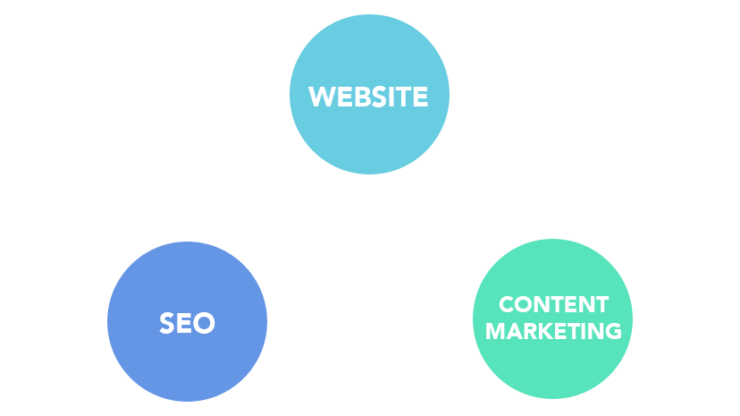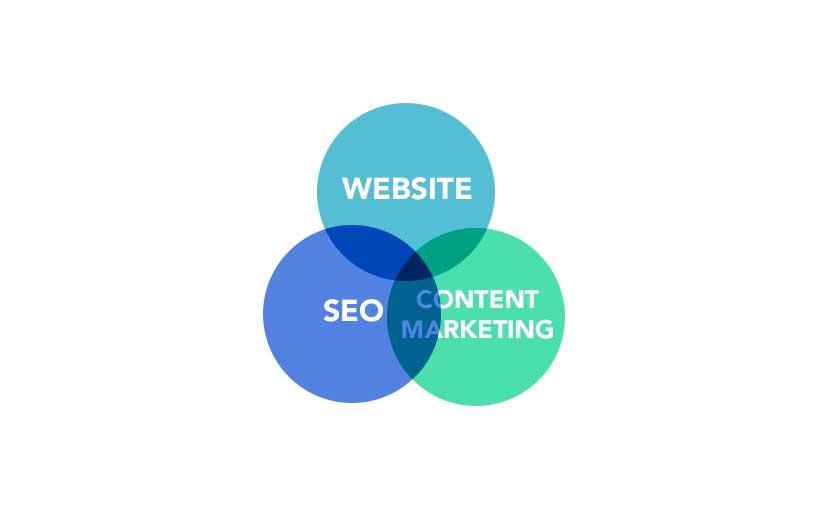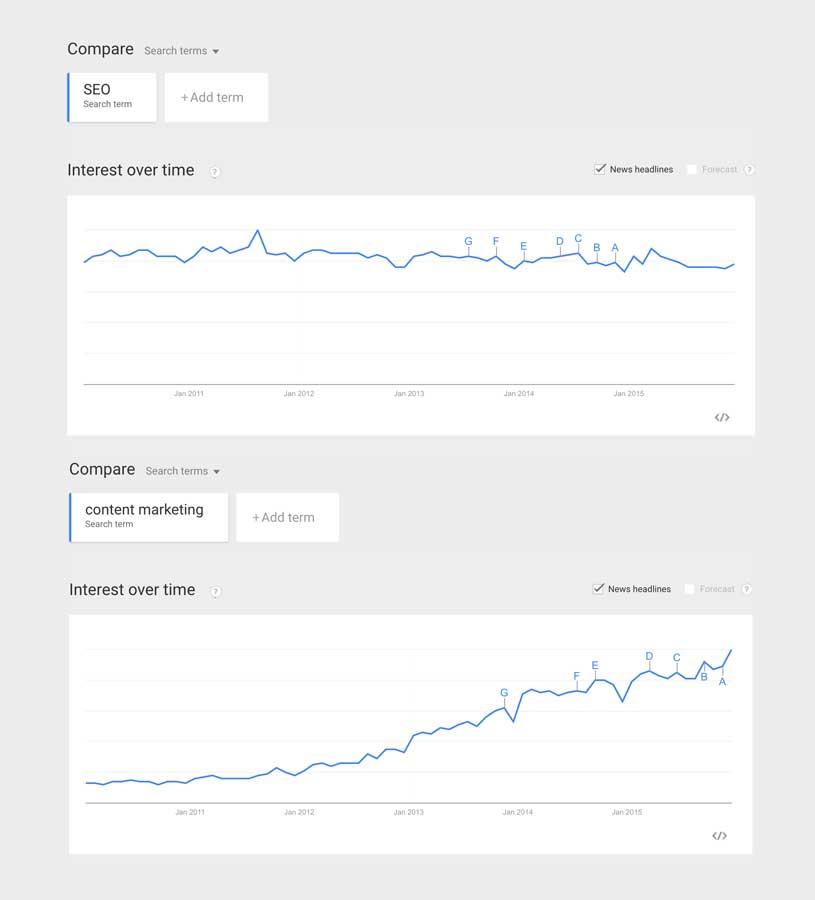What is SEO?
Are you confused or struggling to answer the SEO question with absolute certainty?
Well, you’re not alone. The SEO industry is in a state of flux, which is leaving many people confused about what it actually is.
Here’s our definition:
“Search Engine Optimisation (SEO) is the art of improving your website’s search engine ranking positions (SERPs) by increasing the volume of relevant and commercially viable traffic to your website.”
Now that we are on the same page as to what search engine optimisation is, how do we go about doing it?
The answer to that loaded question is incredibly vast, however let’s get one thing clear:
At the core of any successful website search engine optimisation strategy is content.
This leads us on to our first key point…

Why Content Marketing & SEO should be seen as one with your website
Online search engines were invented to solve one big problem: to find and display web content that answer the internet user’s questions.
Plain. Simple. Straightforward.
That’s it.
Historically, it has always been the objective of online search engines such as Google to match its users with relevant, high-quality content that provides answers to questions and solves problems.
The point in history were SEO lost its way was when internet marketers realised they could trick Google Search into displaying their website higher up in the search engine page results.
These ‘tricks’ lead to the rise of ‘Black Hat SEO’, including such tactics as:
- Spamming a website with search keywords to improve its search position ranking for people using those keywords in their searches e.g. “SEO Brisbane“
- Linking multiple websites that only exist for the sake of improving another website’s search engine rankings to the main website
- Using text that is hidden on web page to trick the search engines into ranking that page, when the context of the page is completely different to the keyword it is ranked for
- Using doorway pages that are designed to rank highly, only to redirect the search engine user to another non-relevant page when clicked on.
- Directly copying content from other websites to increase the website’s overall size and volume of information.
Between the early 2000s to around 2012 Internet Marketers made millions by deploying these and many more black hat SEO techniques to their own businesses, and businesses which they sold these services to.
It wasn’t until the search algorithm update in 2012 dubbed ‘Panda’ that Google Search finally had enough.
Google Search began its own war against black hat SEO by penalizing websites which were guilty of displaying black hat SEO techniques.
Since the Panda update, Google has continued to put nails into the black hat SEO coffin by continual improvements to its search algorithm with the core intention of improving the search engine experience by penalising websites that conduct black hat SEO.
The most worrying thing about the SEO industry is there are still many SEO companies selling black hat SEO services to uneducated companies. Many proclaim that these black hat techniques still work as they are unwilling to re-engineer their business to stay relevant.
This is why so many people are confused about SEO, and continue to get burnt by these backwards SEO companies selling services that do not work anymore.
Those who are uneducated about search engine optmisation do not know who to believe or what to think.
If you are confused about what to think, I invite you to go back to the core reason why search engines exist: to provide relevant content that solves problems and answers questions.
Content always has, and will continue to remain king.

Why Content Marketing is the Future of SEO
Arising from the fallout of Google’s war against black hat SEO is Content Marketing.
In fact, the content marketing industry has achieved double digit growth rates consistently for the last six years. Source

Overall interest in content marketing has grown dramatically over the past 5 years compared to SEO.
The internet marketing industry has come full circle, and has gone back to following the original intention of Google Search prior to the black hat search engine optimisation hangover era which was to provide users with relevant content that solves problems and answers questions.
However, many people view content marketing and search engine optimisation as two completely different things when they are actually both intended to increase a website’s viewership to create new sales opportunities.
In fact, many of the organic, natural SEO techniques (the antichrist to black hat SEO) that were created and refined over the last decade have incredible impact when deployed together with a content marketing strategy.
In part two of this series, we’ll explore how traditional search engine optimisation keyword research techniques can be used to improve your overall content marketing efforts.
Stay tuned for more shortly…


